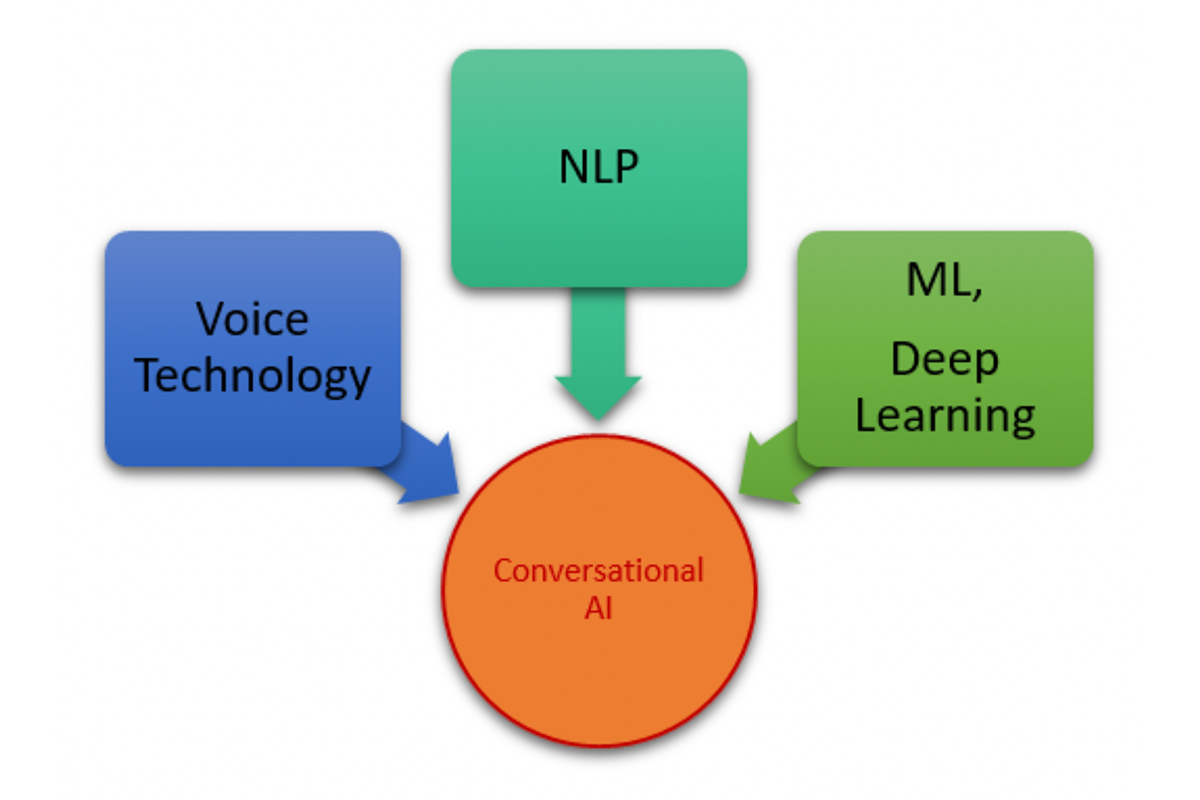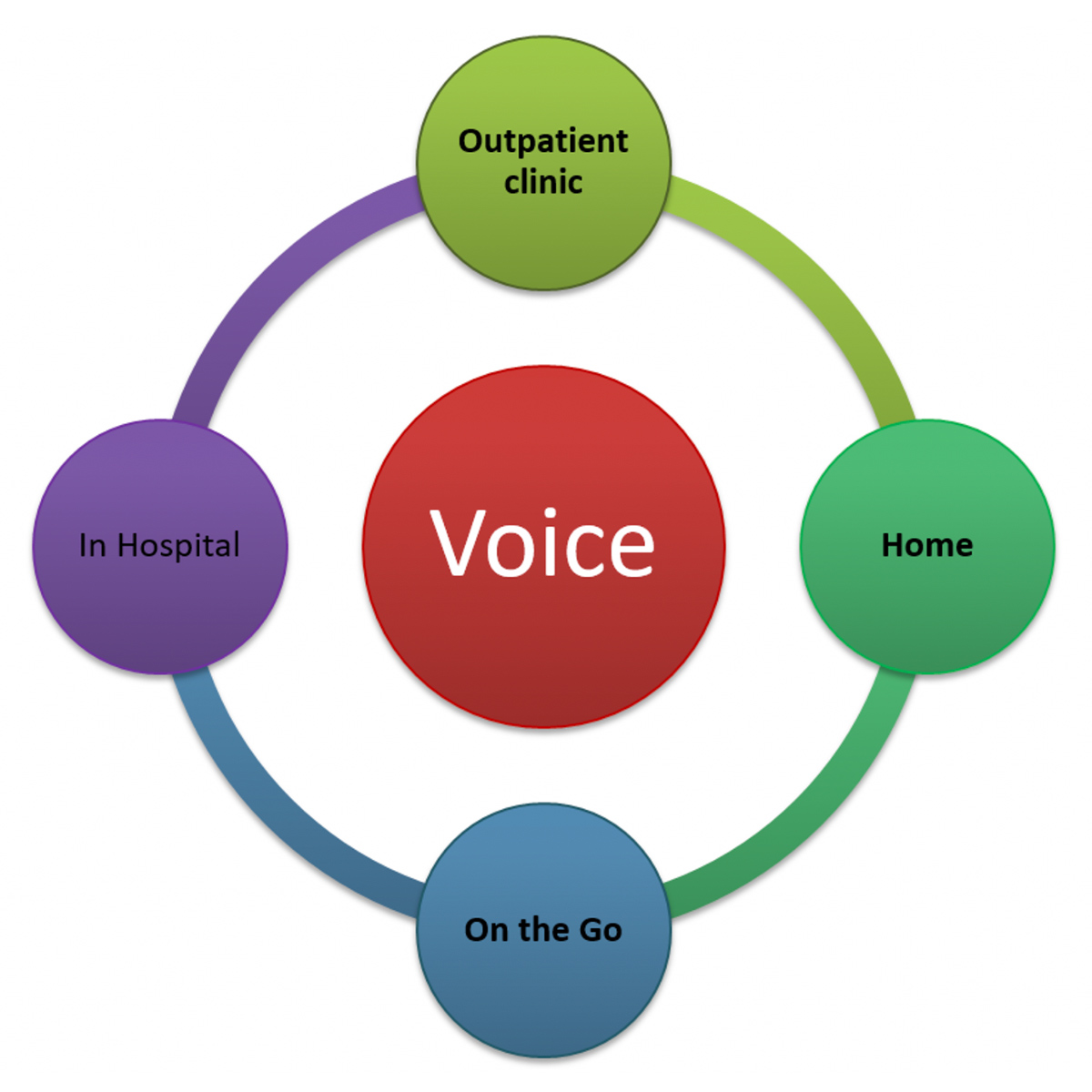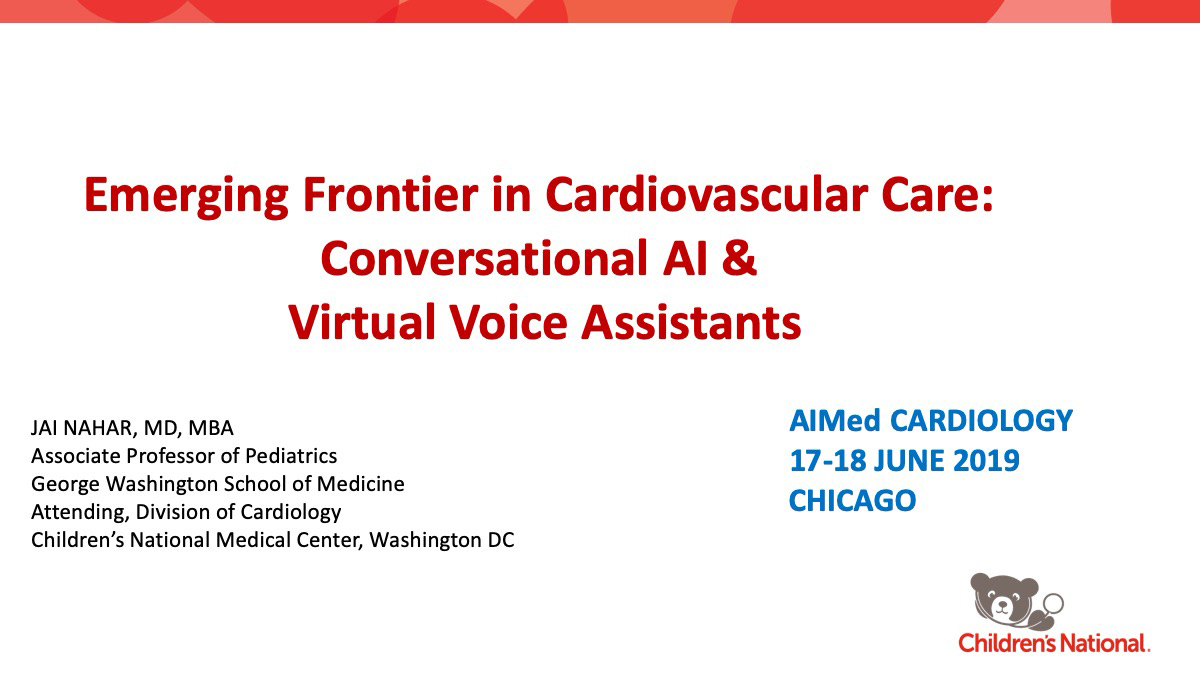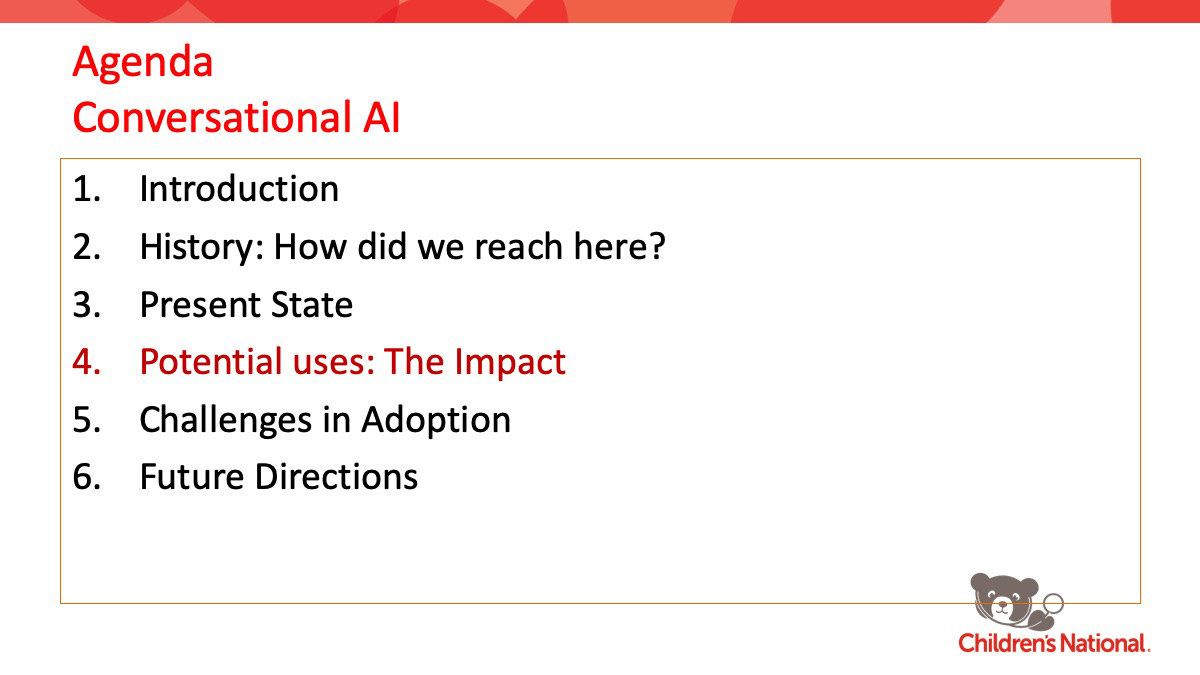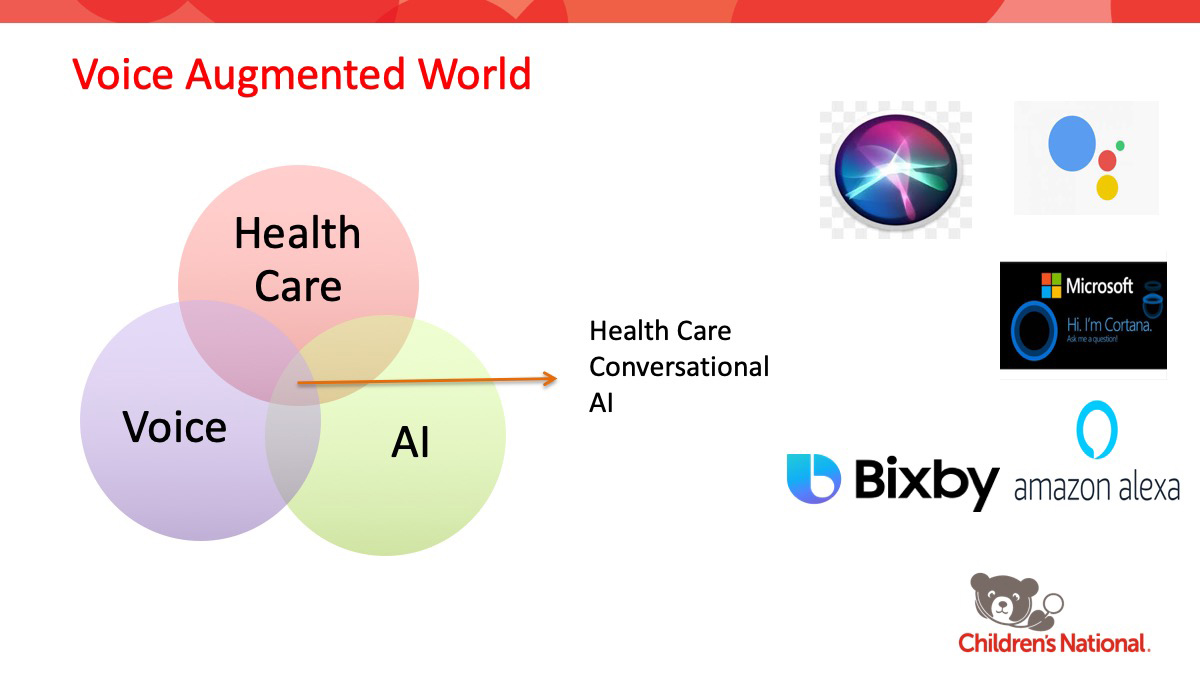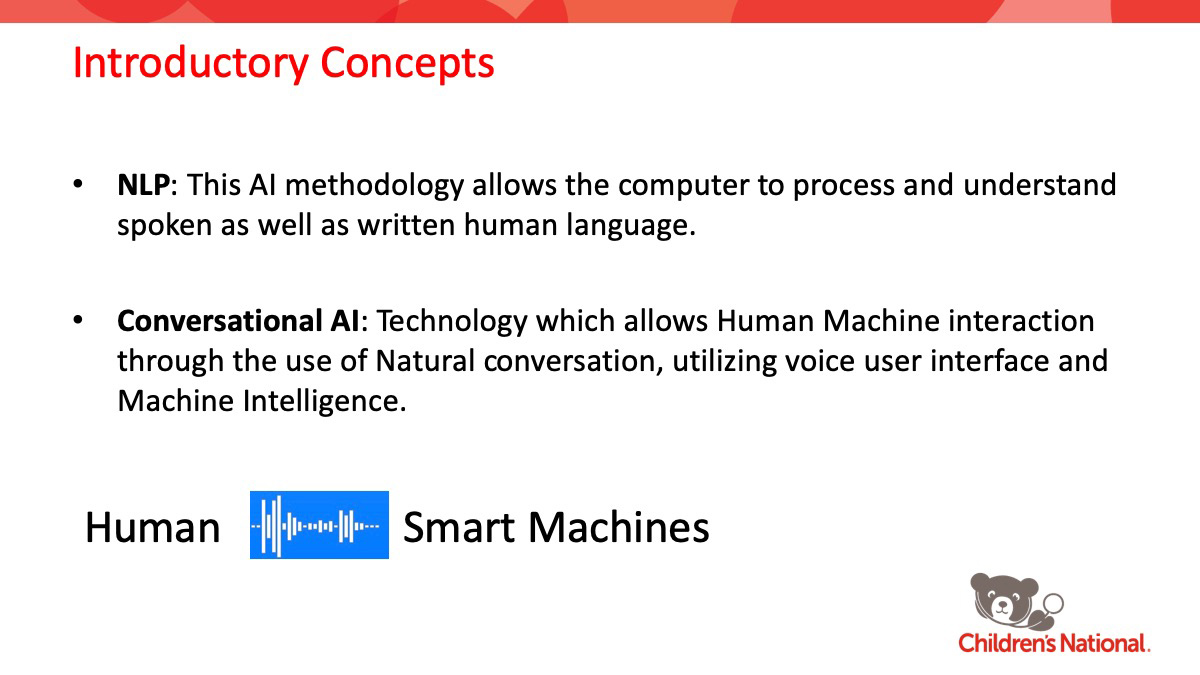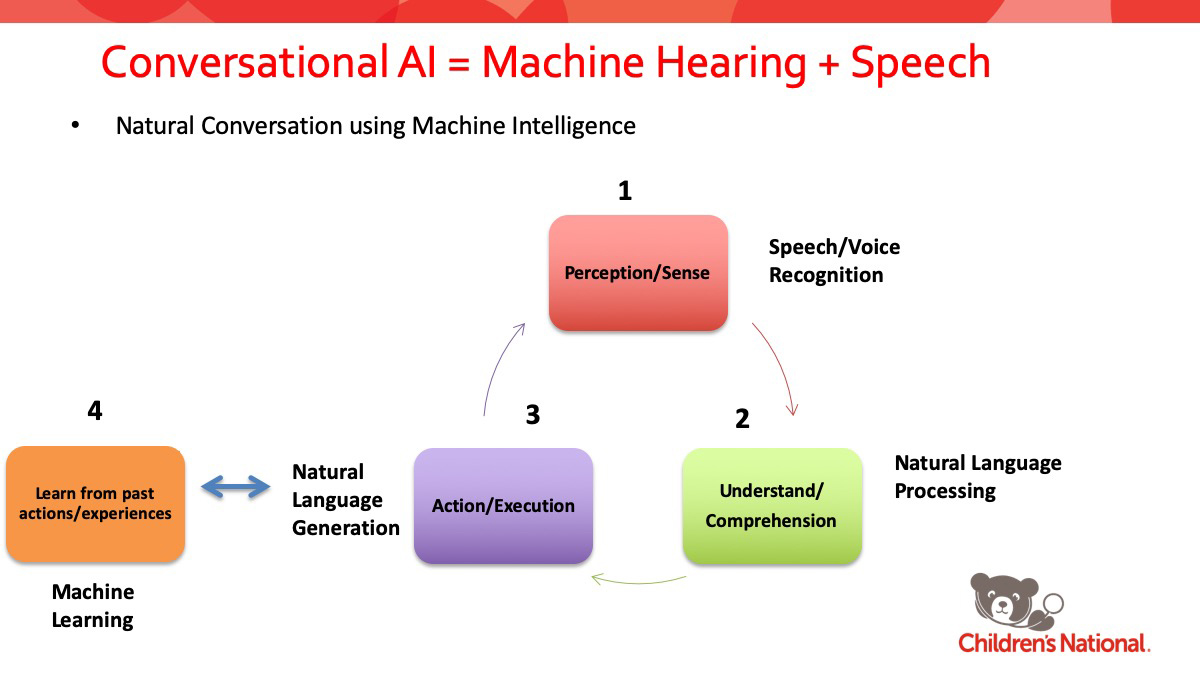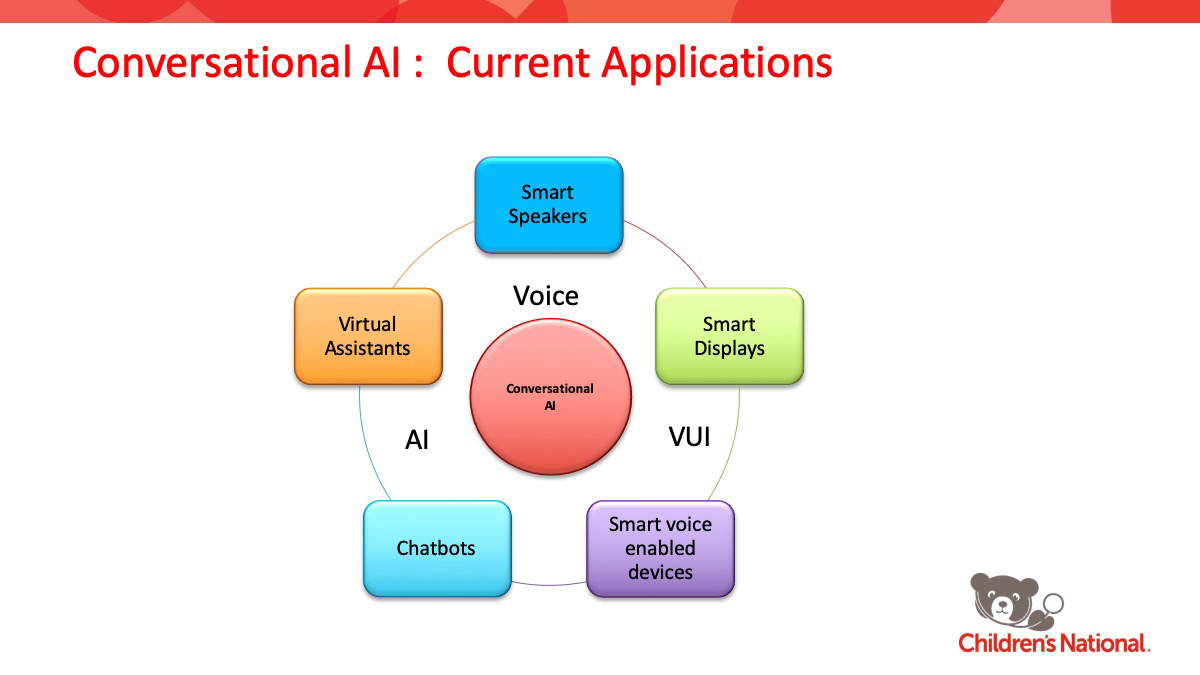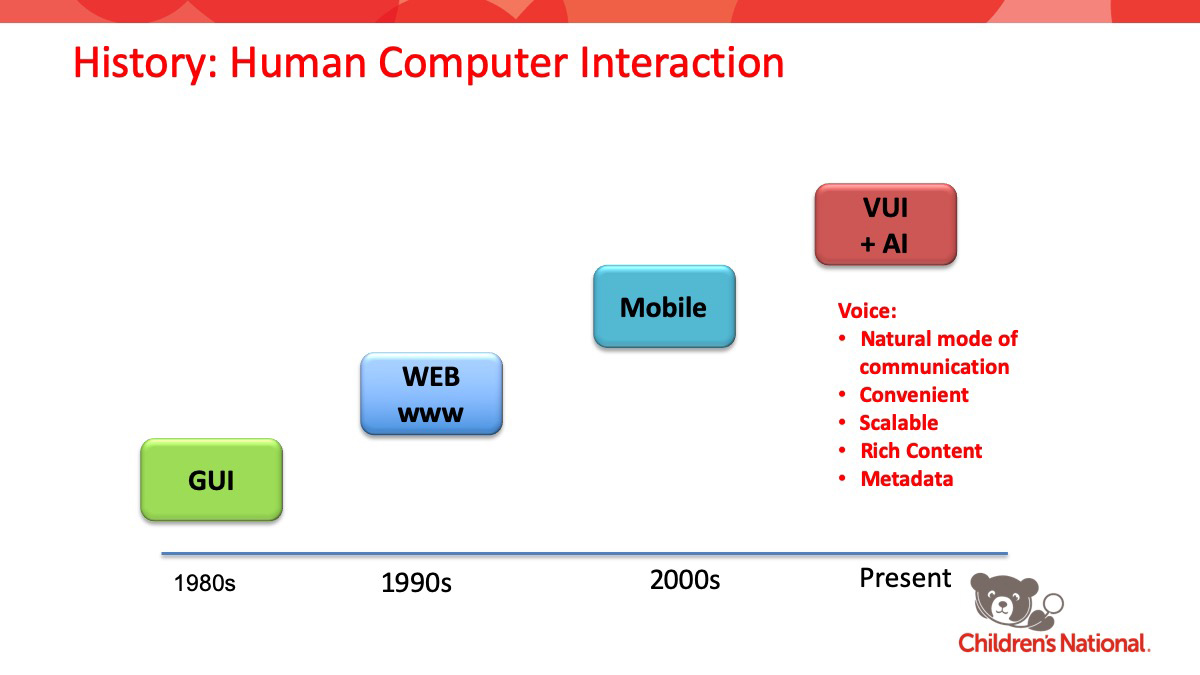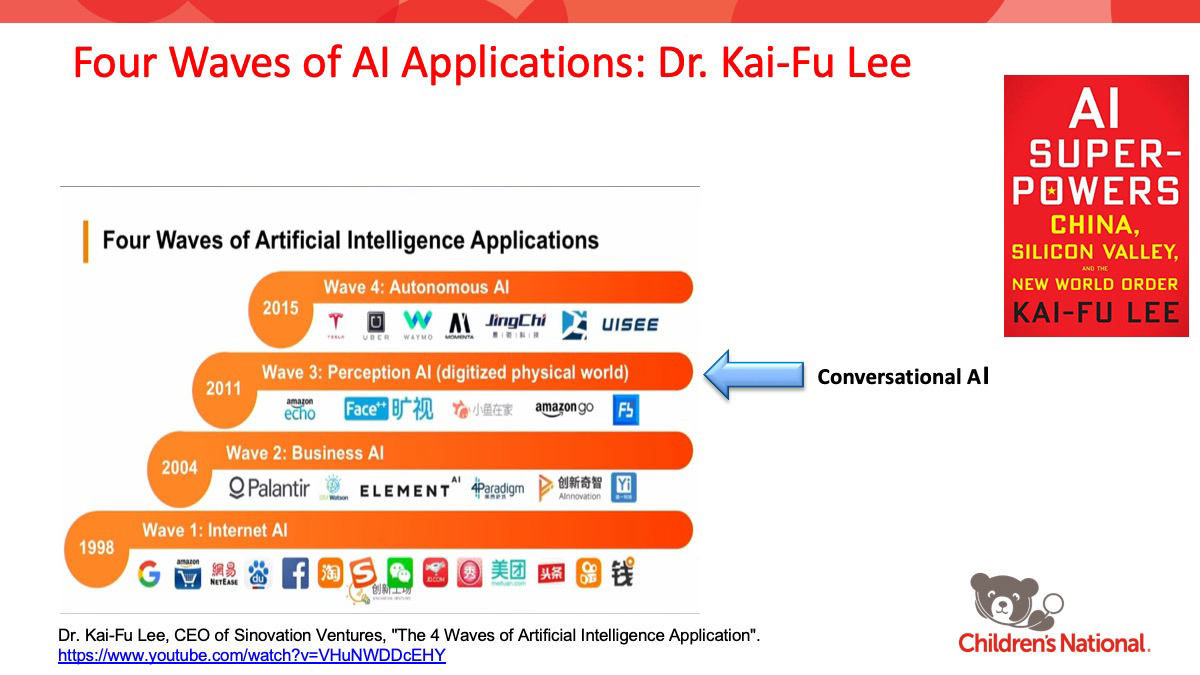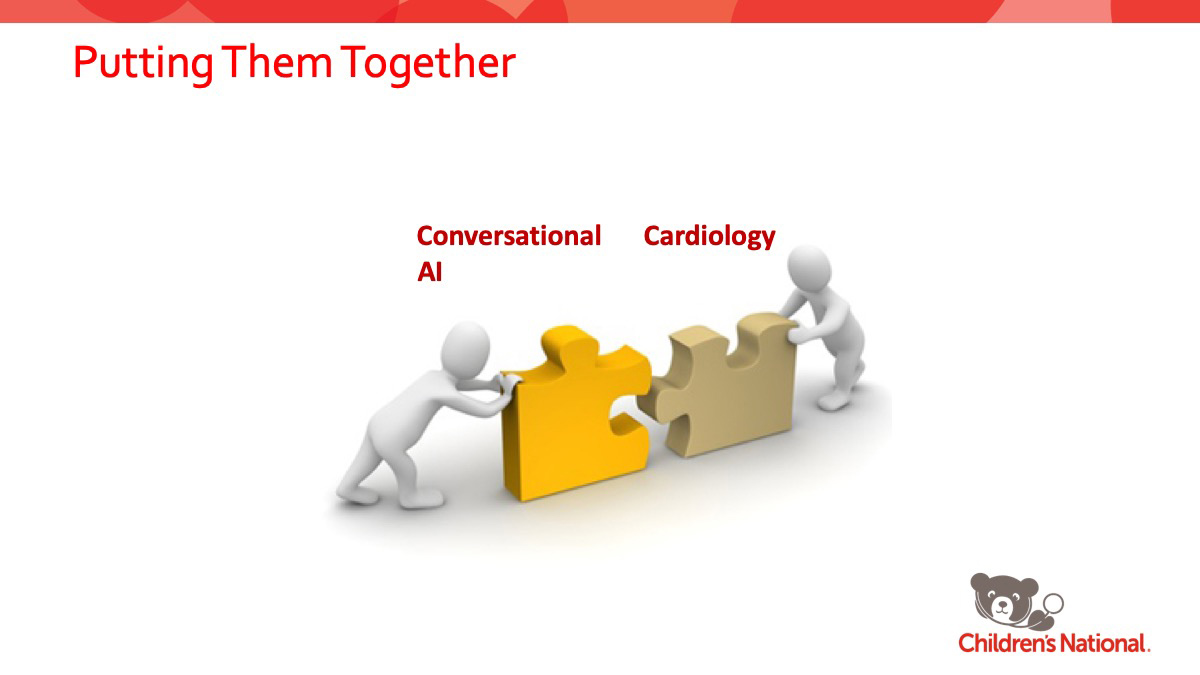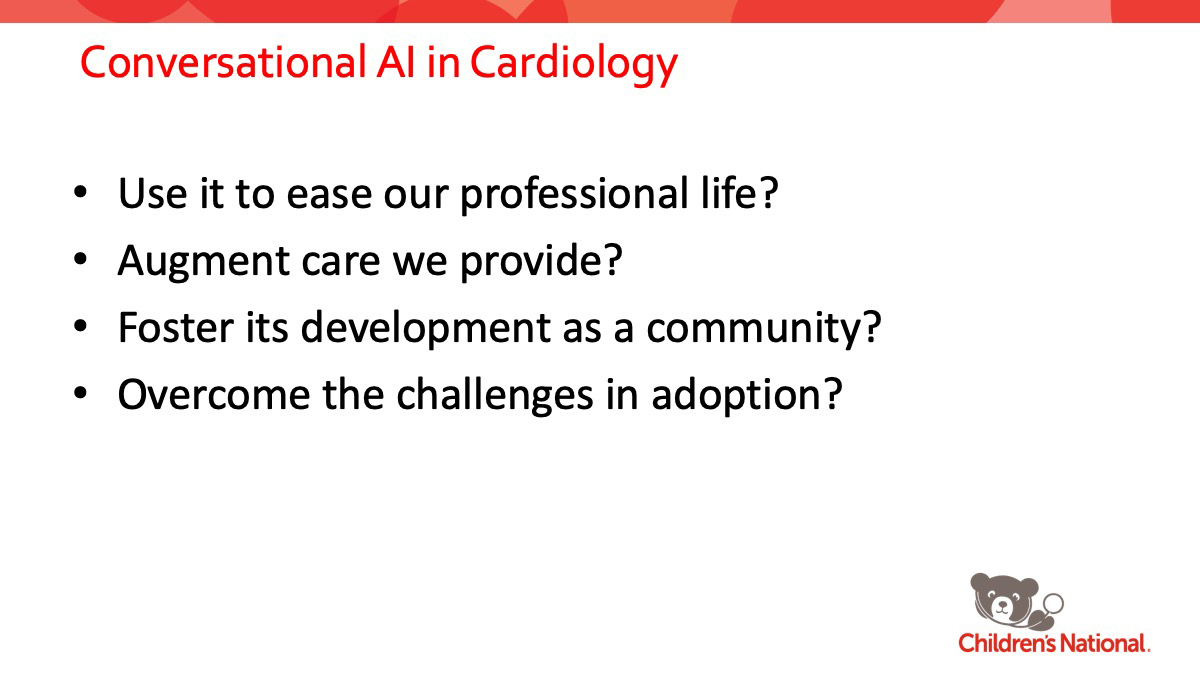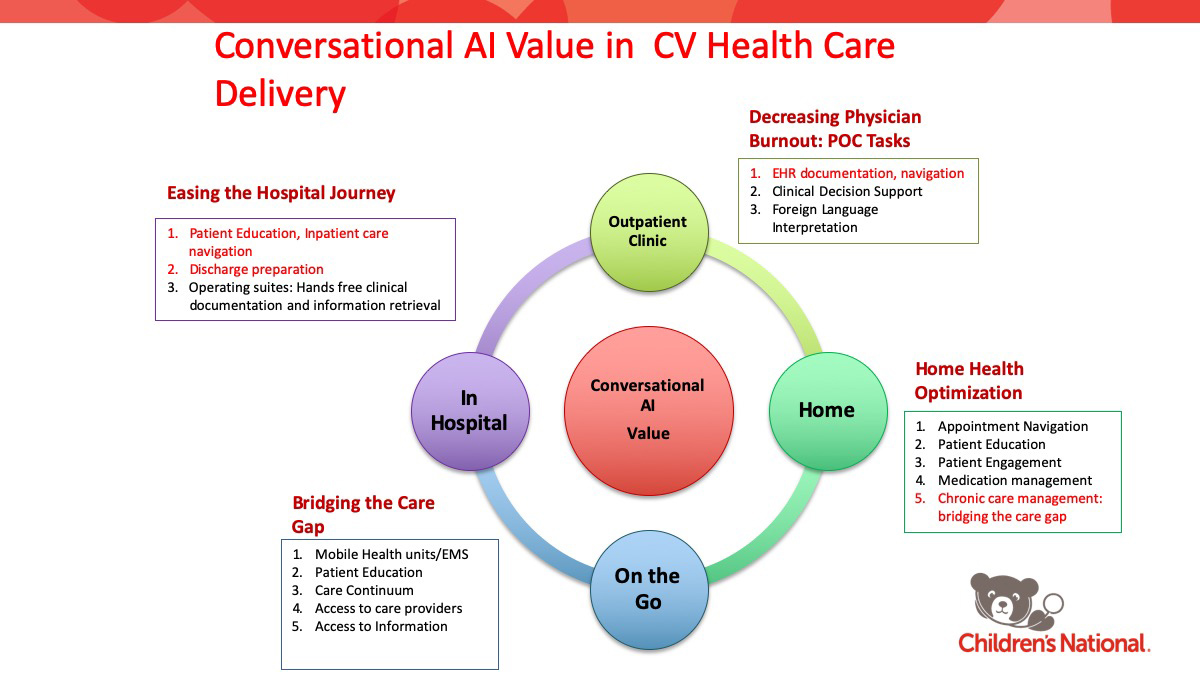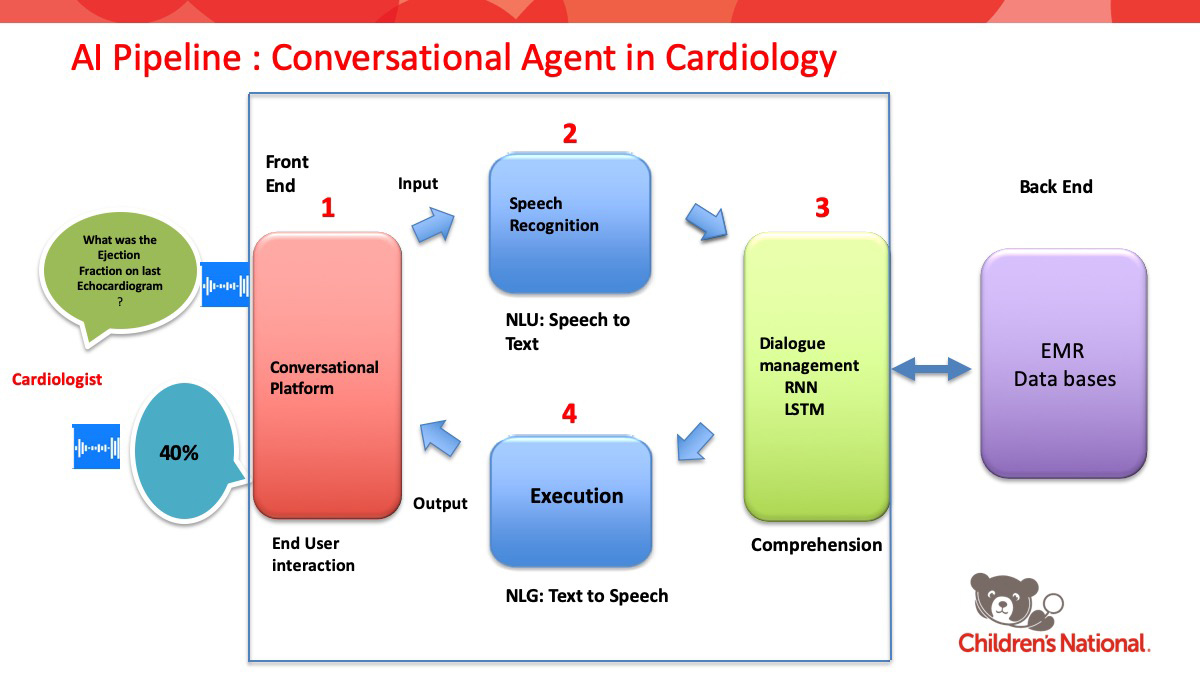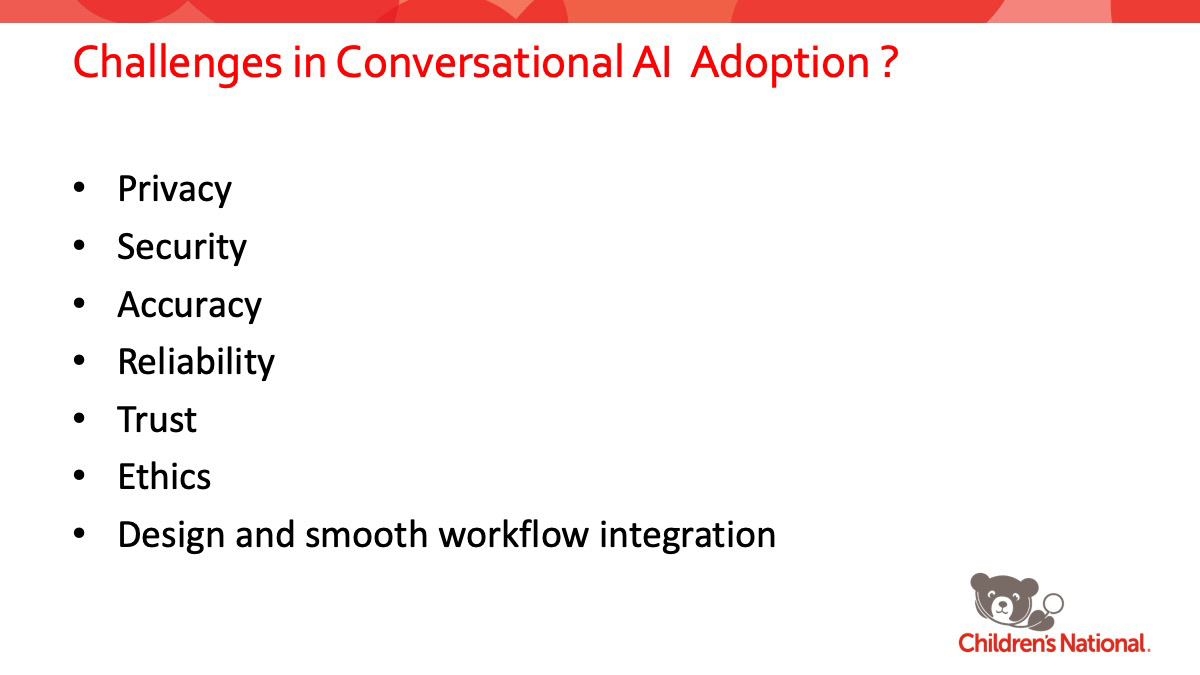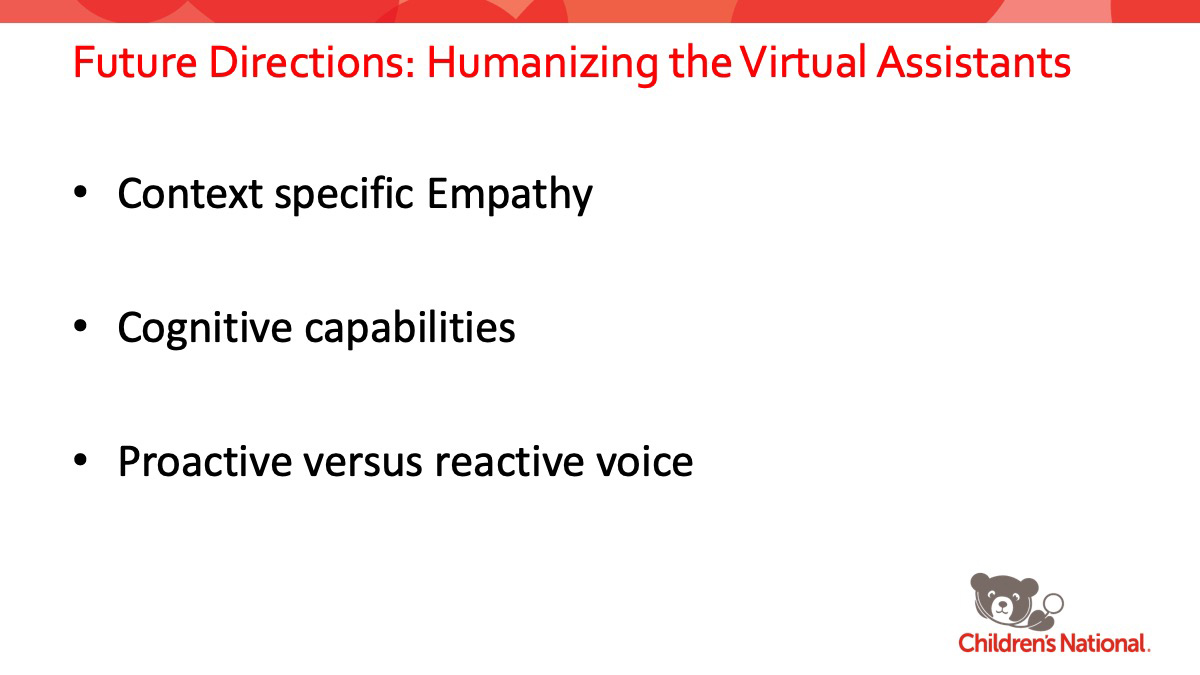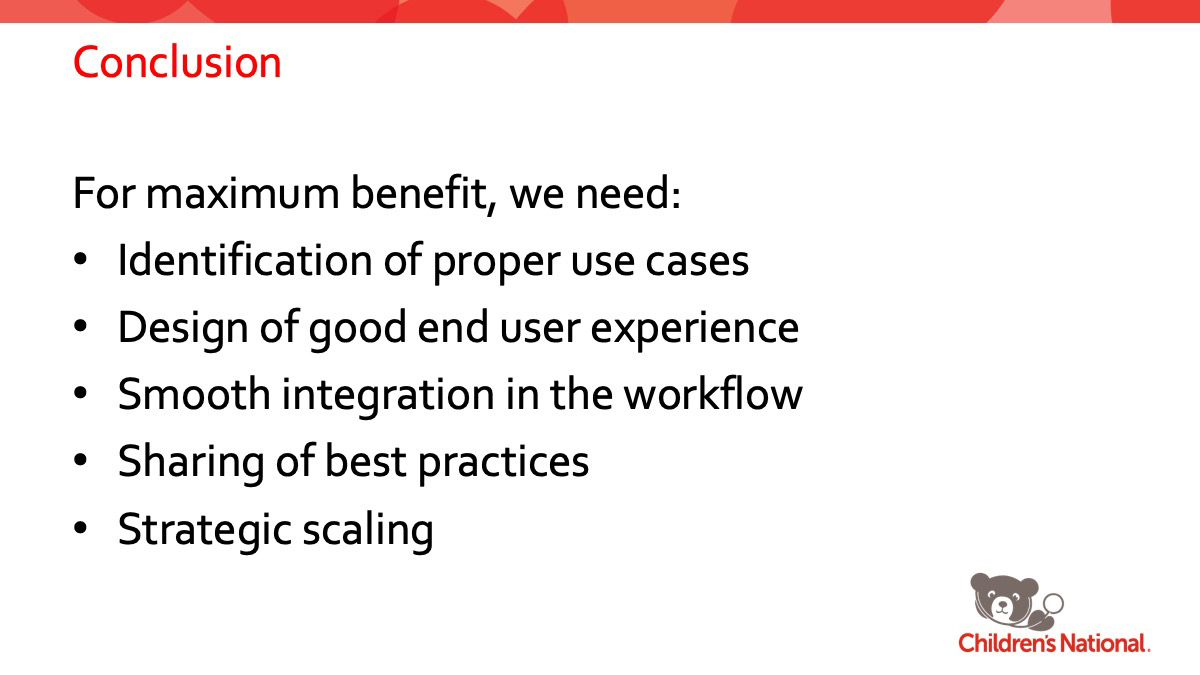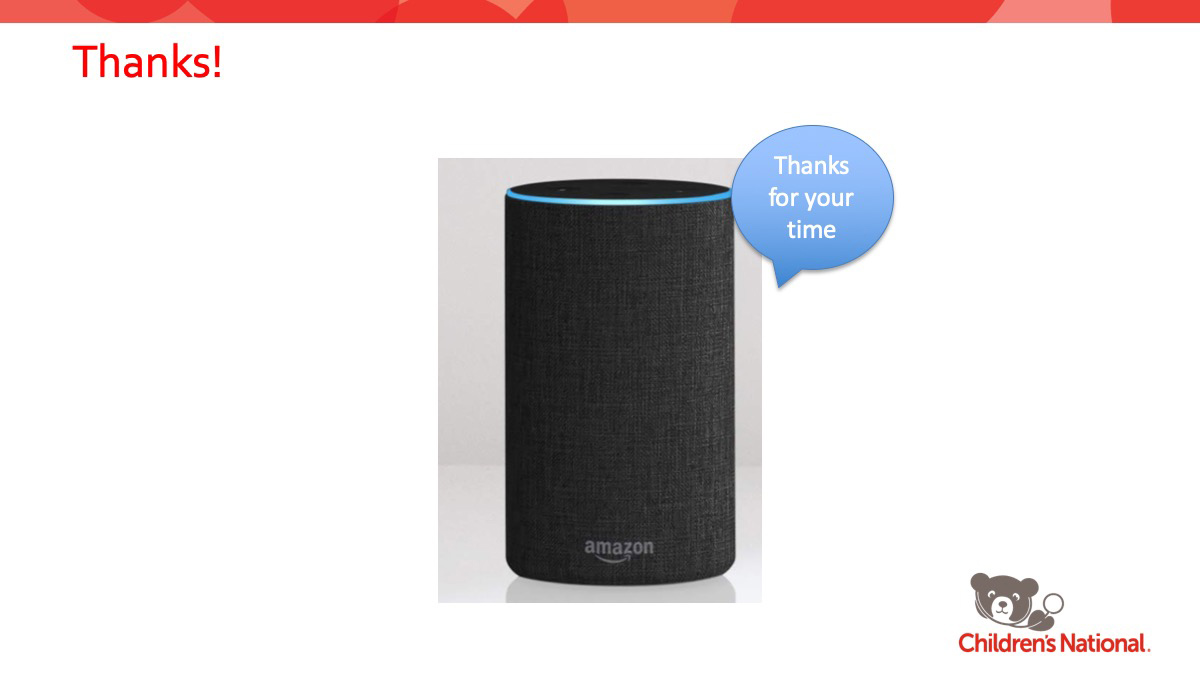Potential of Voice/Conversational AI in Medicine
Agenda
In this article, I will focus on the following key points:
- Why it is an opportune time now to think about voice technology?
- What are some of the important use cases of voice technology in health care delivery?
- What are the challenges in adoption of voice technology?
The Fourth Industrial Revolution has introduced many important technologies that are becoming integral parts of our daily lives, including voice-powered technologies such as Google Assistant, Alexa, Siri and Cortana.
Conversation artificial intelligence (AI) involves the ability of machines like computers and voice-enabled devices to interact intelligently with the user through voice-and-voice user interface. This experience is made possible by synergistic convergence of voice and AI technology (natural language processing and deep learning).
Why Voice Now?
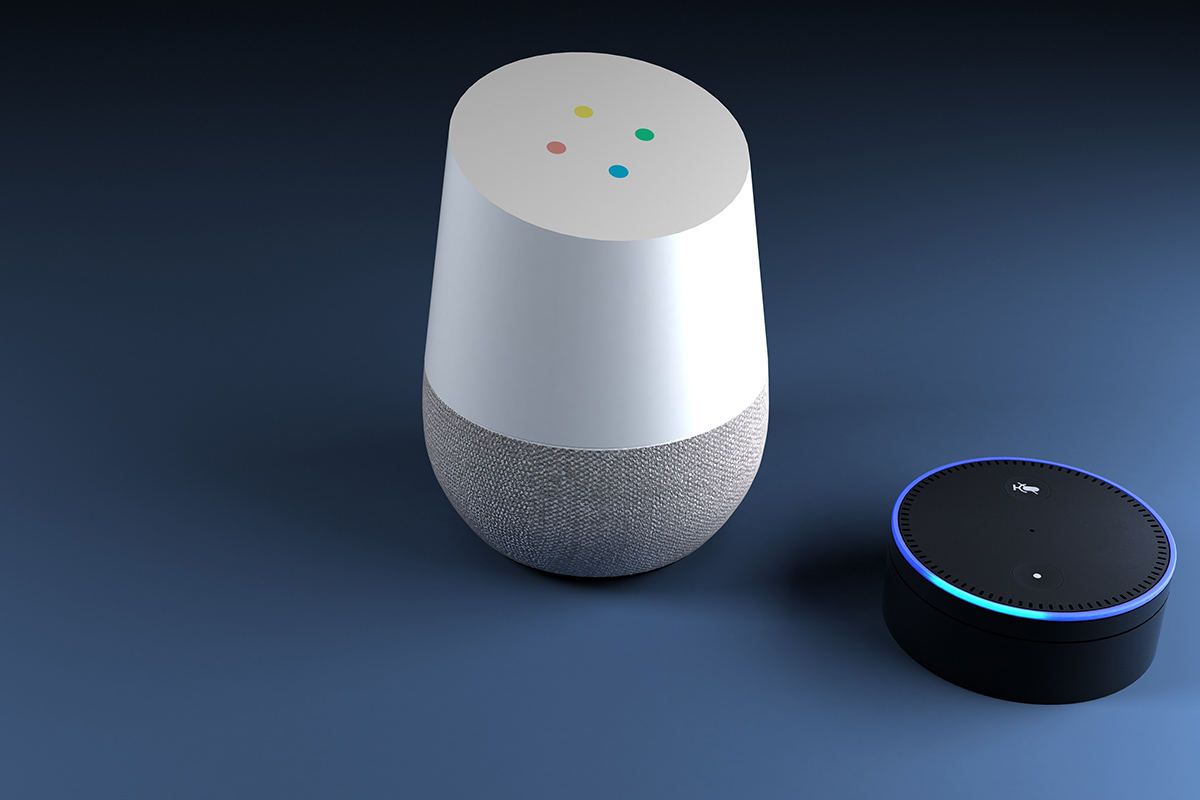
With advancements in technology, voice is emerging as an important interface for human-computer interaction. As a result, there is an increase in voice-enabled applications across different sectors of the economy. Health care is an important sector that can leverage voice technology across its different industry verticals.
There are three important reasons why it is an opportune time now for health care sector to adopt voice technology:
- Voice is convenient to use since it is most natural form of human communication. In addition, it offers content, context and rich metadata that can be appropriately leveraged depending on the use case.
- Advancements in natural language processing, deep learning and cloud computing are enabling increase in functionality of voice-enabled applications.
- From the perceptive of economics, the decrease in price point at which these voice technologies are currently being offered in the market has increased affordability with potential for widespread adoption.
Voice First: Use Cases in Health Care Delivery
Voice has an important advantage. It can bypass the traditional mode of human interaction with computers and digital devices through typing and touch screens. People, especially the elderly, who have difficulty interacting with the computers through these traditional modes can easily do so now using the available intelligent voice technology. This technology will help facilitate their active participation in personal health care journey.
The figure below and the following description illustrates some of the important use cases of voice technology in health care delivery.
Use of Voice in Outpatient/Ambulatory Clinics: Electronic Health Records (EHR) Documentation and Retrieval
Voice can be used by physicians and health care providers at point of care to promptly document information regarding patient encounter into EHR, and as needed retrieve information pertaining to patient's prior records, hospitalizations, ER visits, labs, demographics, and scheduling etc. from the EHR. By decreasing the nonproductive time which physicians are forced to devote for the current EHR systems, voice integrated smart EHR systems will help to decrease the incidence of physician burnout.
Clinical Decision Support
Voice integrated clinical decision support can be used by physicians at the point of care to help with diagnosis and treatment planning.
Foreign Language Interpretation
Access to foreign language interpretation service can be constrained by cost and geographical location. Smart voice assistants can facilitate foreign language interpretation in these situations.
Use of Voice at Home
Voice assistants can help the patients and their families in scheduling and preparing for the upcoming appointments, disease education, chronic care management, treatment adherence and active engagement in their health care journey.
Additionally, analysis of voice bio markers can provide timely and valuable information, which can help prompt diagnosis of diseases and be used for risk prediction.
Use of Voice in the Hospital
During inpatient hospitalization, voice can be used by patients to access information regarding their care team, seek answers to simple questions like what's for lunch, search educational content relevant to their hospitalization and prepare for post discharge care at home.
During surgery or interventional procedures, the surgeon or operator in the operating room or interventional procedure suite can use voice assistant technology to retrieve medical information of the patient from the EHR, and timely document new information in the patient's EHR.
Use of Voice on the Go
For patients who are travelling or away from home, mobile-integrated smart voice assistants can be used to access health education content, their personal care management plan and to reach out to their health care provider as needed.
Challenges in Adoption of Voice Technology
As we look forward to scaling and widespread adoption of voice technology in health care, the following challenges need to be considered.
- Privacy and Security: Maintenance of privacy and security of health information is integral to ensure against unauthorized access and misuse of personal health information.
- Accuracy: To obtain proper results from the use of conversational AI system, human voice has to be accurately comprehended by the voice-enabled devices. Failure to do so will result in inefficient use and end user frustration.
- Optimal Design/User Experience: The design of these voice-enabled devices should facilitate their smooth and painless integration in the workflow of the end user.
- Reliability and Trust: The content that is generated by the conversational AI system and delivered to the end user should be from a reliable and trustworthy source.
- Ethics: Data from a conversational AI system should not be unethically used to the disadvantage of the end user.
Future Directions
Current voice technologies are reactive as their response is initiated by the end user's voice or command. There should be development of proactive voice systems that can respond proactively in an autonomous manner, appropriate to the context and situation, and communicate effectively with its end user. These proactive voice systems can serve as valuable smart voice assistants.
Despite multiple challenges, voice technology-enabled conversational AI systems have great promise in health care sector. Optimal implementation requires identification of proper use cases where this technology can be appropriately leveraged, design of good user experience around use of voice technology, maintenance of privacy, security of the data and promotion of ethical use for the benefit of end user. Voice technology is an emerging frontier in health care and has great potential to transform the world of medicine.


